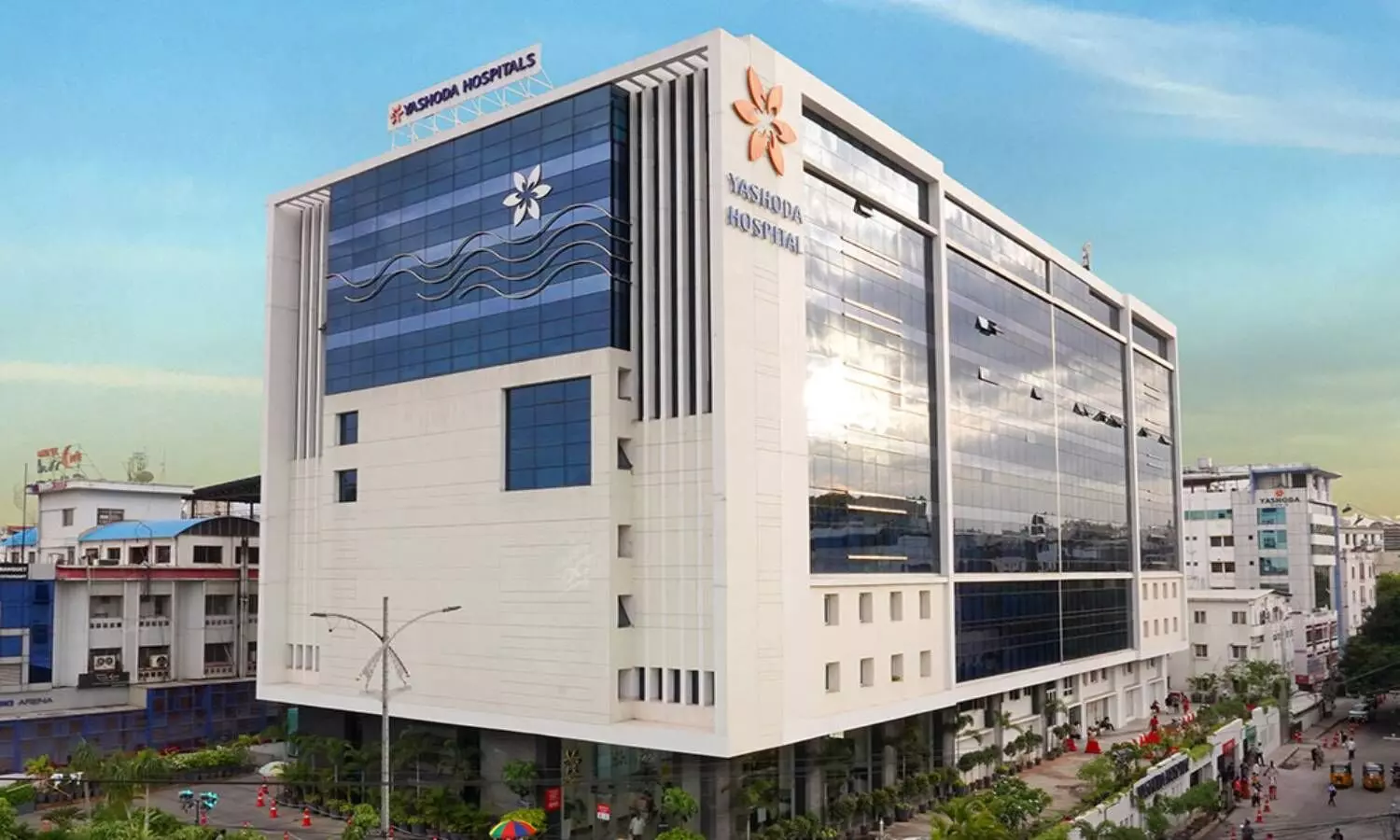Yashoda Hospital directed to pay Rs. 5L to family of patient who died of 'negligence'
The Telangana State Consumer Dispute Redressal Commission has directed Yashoda Hospital to pay a compensation of Rs. 5 lakh to the family of a patient who died due to negligence.
By Sumit Jha
Hyderabad: The Telangana State Consumer Dispute Redressal Commission has directed Yashoda Hospital to pay a compensation of Rs. 5 lakh to the family of a patient who died due to negligence.
In March 2012, V. Jagadishwaraiah underwent right total knee arthroplasty. His son said no pre-operative diagnostic tests, which are mandatory, were conducted on the 72-year-old patient. After the surgery, the patient developed several complications and they were informed that intra-abdominal abscess' was observed due to Perforated Sigmoid Colonic Diverticulitis.
A senior gastroenterologist of the hospital was called to perform the surgery after a week. The patient, however, developed severe complications and died after two days.
The patient was a renowned dealer in the bullion market and ran a very successful business. His sons further submitted that their father was obese and suffered from hypertension and Diabetes Mellitus type-2. Persons with these ailments should not be advised to undergo TKR (Total Knee Replacement). Against this rule, the hospital advised him to undergo the said surgery and failed to provide the proper care and treatment which amounted to medical negligence.
Yashoda Hospital filed a written reply contending that Jagadishwaraiah had complained of pain in the right knee and had difficulty walking and climbing stairs. He was informed about the procedure and probable complications before obtaining his consent. He underwent a thorough physical, cardiological and anesthetic evaluation before surgery. The patient complained of abdominal distension which is totally unrelated to the total knee replacement surgery, the hospital said.
"Abdominal distension is an occurrence in some patients during post-operative period, mostly due to electrolytes imbalance. Necessary treatment was given to the patient and he was regularly monitored by the team of doctors. Unfortunately, in spite of the best possible treatment, the patient died. The patient expired because of 'sepsis associated with multi-organ dysfunction syndrome, secondary to sigmoid diverticulitis with perforation and peritonitis'," said the hospital.
After observing the arguments, the commission said the patient was 72 years old and aging also naturally slows down the movement of the intestines. An older adult is at risk of ileus, specifically after surgery when they require more medications. The patient never had any history of colonic diverticulae as stated by the doctor but this occurred due to electrolyte imbalance post-operation and was not addressed by the opposite parties at the earliest.
The patient had not undergone a surgical procedure on the abdomen. An ileus is more likely if he had undergone abdominal surgery. The other medical condition that can increase the risk of ileus is 'electrolyte imbalance' and this was also admitted to by hospital. "Having been aware of this complication, the hospital did not treat it at the earliest. A CT scan or ultrasound would have provided a detailed image and helped the doctors identify the potential area where the ileus is located. An ileus is common but highly treatable but the delay can cause severe complications. Two of the most severe complications are necrosis leading to bowel perforation. Surgery-related ileus often heals within a few days and treatment at the hospital must be immediate and include intravenous fluids to prevent dehydration, nasogastric compression and pain relief. The opposite party made a diagnosis of hollow viscous perforation by which time the patient had been complaining of abdominal pain and distention for more than four days and he was suspected to be suffering from paralytic ileus," said the commission.
It concluded that there was medical negligence giving rise to deficiency in service on the part of the hospital and awarded a sum of Rs. 5 lakh compensation to the complainant.